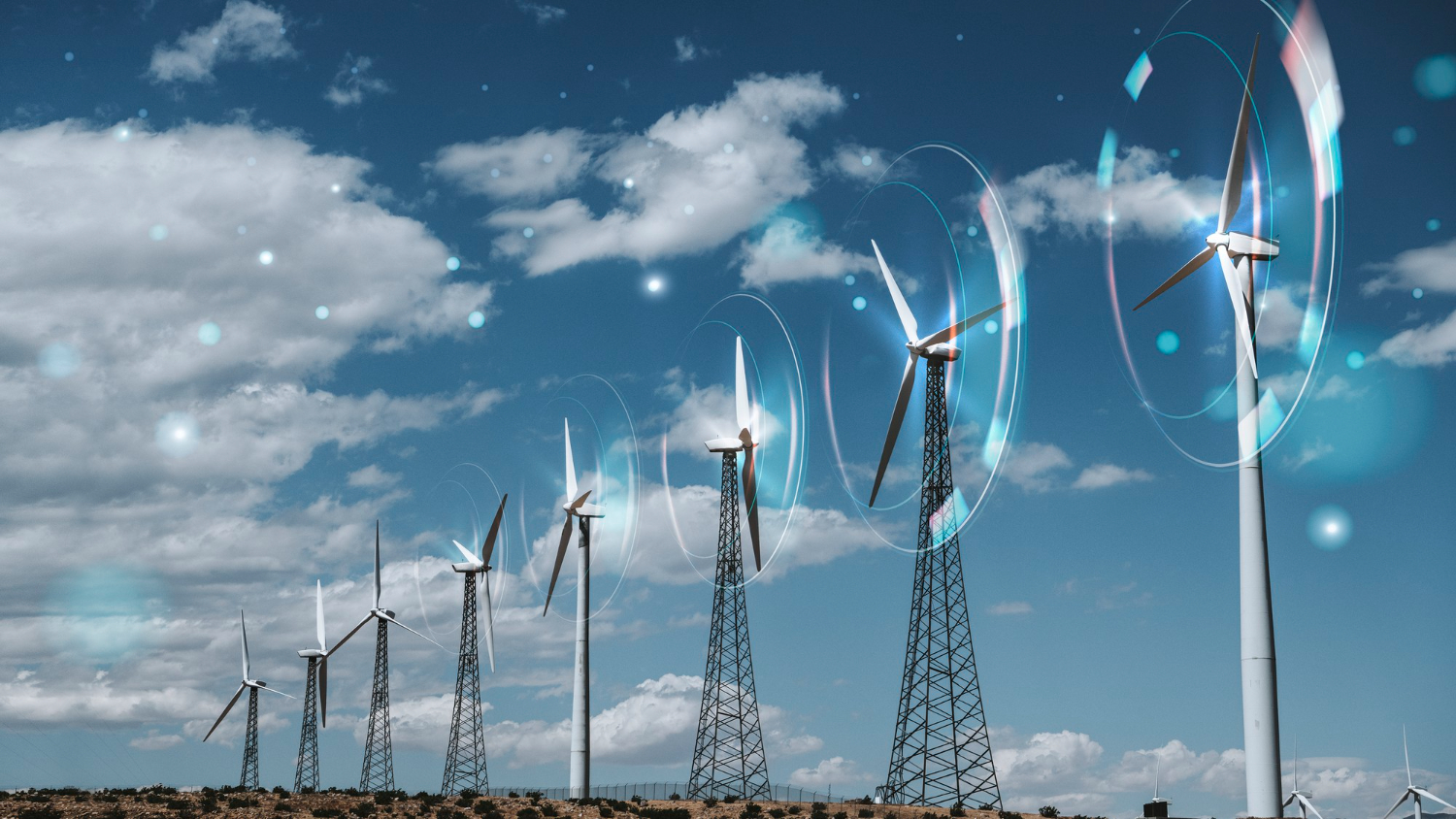You know that feeling when you’re juggling a dozen tasks, and someone hands you one more thing to worry about? That’s what environmental compliance can feel like in Malaysia’s bustling Energy & Utilities sector. But here’s the thing: ISO 14001 training isn’t just another box to tick. It’s a lifeline—a way to streamline operations, save costs, and show the world you’re serious about sustainability. In a country where energy demands are soaring and environmental regulations are tightening, getting your team trained on ISO 14001 is like giving them a roadmap to navigate the chaos. Let’s break it down and see why this standard, and the training behind it, is shaking things up for Malaysian energy companies.
What’s ISO 14001, and Why Should You Care?
ISO 14001 is an internationally recognized standard for environmental management systems (EMS). It’s not just a fancy certificate to hang on your office wall—it’s a framework that helps organizations manage their environmental impact, reduce waste, and stay compliant with regulations. For Energy & Utilities companies in Malaysia, where power generation and resource management are under constant scrutiny, this standard is a big deal.
Why? Because Malaysia’s energy sector is at a crossroads. The country’s pushing hard for renewable energy—think solar farms in Sabah or wind projects in Sarawak—while still relying on traditional sources like oil and gas. Add in stricter laws from the Department of Environment (DOE) and global pressure for greener practices, and you’ve got a recipe for complexity. ISO 14001 training equips your team to handle it all, from cutting emissions to managing waste, without losing sight of profitability.
Here’s a quick snapshot of what ISO 14001 brings to the table:
- Better compliance: Stay ahead of Malaysia’s environmental laws and avoid hefty fines.
- Cost savings: Reduce energy waste and streamline processes.
- Reputation boost: Show stakeholders you’re committed to sustainability.
- Risk management: Spot environmental risks before they become costly problems.
Sounds good, right? But the real magic happens when your team knows how to implement it. That’s where training comes in.
The Malaysian Context: Why Energy & Utilities Need This Now
Malaysia’s energy sector is a powerhouse—pun intended. With players like Tenaga Nasional Berhad (TNB) and Petronas leading the charge, the industry is a cornerstone of the nation’s economy. But it’s also under pressure. The National Energy Transition Roadmap (NETR) aims to hit 70% renewable energy capacity by 2050. That’s ambitious, and it means companies need to rethink how they operate. ISO 14001 training isn’t just about meeting today’s regulations; it’s about future-proofing your business.
Let’s talk local for a second. In Malaysia, environmental issues hit close to home. From deforestation in Borneo to pollution in urban centers like Kuala Lumpur, the public’s watching. Customers, investors, and even employees want companies to step up. A well-trained team can turn those expectations into opportunities—think lower energy bills, happier stakeholders, and a shiny reputation as a green leader.
But here’s a confession: I used to think ISO standards were just bureaucratic red tape. Then I saw how companies in Malaysia’s energy sector—big and small—used ISO 14001 to cut costs and win contracts. It’s not about paperwork; it’s about working smarter. Ever wonder how a coal plant in Johor reduced its emissions by 15% while saving millions? Spoiler: ISO 14001 training was a big part of it.
Who Needs ISO 14001 Training?
If you’re in Energy & Utilities, the answer is simple: everyone. From engineers on the ground to C-suite execs, understanding ISO 14001 can transform how your organization operates. Here’s a breakdown of who benefits most:
- Environmental managers: They’ll learn to design and implement an EMS that actually works.
- Operations teams: They’ll spot inefficiencies—like energy leaks or wasteful processes—and fix them.
- Compliance officers: They’ll stay one step ahead of DOE regulations and avoid penalties.
- Leadership: They’ll see the big picture—how sustainability drives profits and reputation.
I’ve talked to folks in Malaysia’s energy sector who thought training was just for junior staff. Nope. When senior leaders get on board, it sets the tone for the whole company. Imagine your CEO championing a greener future—how’s that for motivation?
What Does ISO 14001 Training Look Like?
Okay, so you’re sold on the idea. But what’s the training actually like? In Malaysia, ISO 14001 courses come in all shapes and sizes—online, in-person, or hybrid. Providers like SIRIM QAS International and TÜV SÜD Malaysia offer programs tailored to the energy sector, blending global standards with local know-how.
A typical course might cover:
- The basics: What ISO 14001 is and how it fits into your operations.
- EMS development: How to build an environmental management system from scratch.
- Auditing skills: How to check if your EMS is working (and fix it if it’s not).
- Local regulations: Understanding Malaysia’s Environmental Quality Act and DOE requirements.
- Practical exercises: Real-world scenarios, like reducing emissions in a power plant.
The best part? These courses aren’t one-size-fits-all. Whether you’re a small utility provider in Penang or a multinational like Petronas, trainers customize the content to your needs. Some even offer on-site sessions, so your team can learn without leaving the office.
Here’s a tip: Look for trainers with experience in Malaysia’s energy sector. They’ll throw in real examples—like how a solar farm in Melaka used ISO 14001 to streamline its operations—and make the material feel less like a textbook and more like a conversation.
The Payoff: What’s in It for Your Company?
Let’s get to the good stuff: the benefits. ISO 14001 training Malaysia isn’t just about checking boxes; it’s about tangible results. Here’s what you can expect:
- Lower costs: Energy & Utilities companies often waste resources without realizing it. Training helps you spot leaks—literal and figurative—and plug them. One Malaysian utility company slashed its water usage by 20% after training its staff.
- Fewer fines: The DOE doesn’t mess around. Non-compliance can cost millions in penalties. A trained team knows how to stay on the right side of the law.
- Competitive edge: Clients and partners love working with sustainable companies. ISO 14001 certification can open doors to new contracts, especially with global firms.
- Happier workforce: Employees want to work for companies that care about the planet. Training shows you’re serious about making a difference.
And let’s not forget the feel-good factor. There’s something satisfying about knowing your company’s doing its part for Malaysia’s environment. Picture this: your team’s cutting emissions, your customers are raving about your green credentials, and you’re saving money. That’s the ISO 14001 effect.
Overcoming the Hurdles: What’s Holding You Back?
Now, I know what you’re thinking. “This sounds great, but it’s probably expensive, time-consuming, or both.” Fair point. Let’s tackle the common roadblocks:
- Cost: Training isn’t cheap, but it’s an investment. Compare it to the cost of a DOE fine or a missed contract. Plus, many providers in Malaysia offer flexible payment plans.
- Time: Your team’s busy. Who has time for a multi-day course? Good news: online and hybrid options let you learn at your own pace. Some courses even offer bite-sized modules.
- Complexity: ISO standards can feel overwhelming. But good trainers break it down into plain English (or Bahasa Malaysia, if you prefer). You don’t need a PhD to get it.
Here’s a real story: A mid-sized utility in Sabah was hesitant to invest in training. They thought it’d be too disruptive. But after a two-day workshop, their team identified inefficiencies that saved them RM500,000 in the first year. Not bad, right?
Choosing the Right Training Provider in Malaysia
Not all training providers are created equal. You want someone who gets Malaysia’s energy sector and can make ISO 14001 feel relevant. Here’s what to look for:
- Local expertise: Providers like SIRIM or Bureau Veritas Malaysia know the local landscape—regulations, challenges, and all.
- Industry focus: Choose a trainer with experience in Energy & Utilities. They’ll use examples that hit home, like managing emissions in a gas plant.
- Practical approach: Avoid overly theoretical courses. Look for hands-on exercises and case studies.
- Certification: Ensure the training leads to recognized credentials, like IRCA or Exemplar Global certification.
Pro tip: Check reviews on platforms like Google or LinkedIn. Other Malaysian companies will spill the tea on which providers deliver the goods.
Making It Stick: How to Implement What You Learn
Training’s only half the battle. The real challenge is putting it into practice. Here’s how to make ISO 14001 work for your company:
- Start small: Don’t try to overhaul everything at once. Focus on one area—like waste management—and build from there.
- Get buy-in: Share the vision with your team. Show them how ISO 14001 benefits everyone, not just the compliance folks.
- Track progress: Use tools like EMS software to monitor your environmental performance. Malaysia-based platforms like GreenTech Malaysia can help.
- Celebrate wins: Did your team cut energy use by 10%? Shout it from the rooftops (or at least in your company newsletter).
I’ve seen companies make the mistake of treating ISO 14001 like a one-and-done deal. It’s not. It’s a mindset shift. Keep training, keep auditing, and keep improving. That’s how you stay ahead in Malaysia’s fast-moving energy sector.
The Bigger Picture: Why This Matters for Malaysia
Let’s zoom out for a moment. Malaysia’s got big plans—think Vision 2030 and the NETR. The Energy & Utilities sector is at the heart of it, balancing growth with sustainability. ISO 14001 training isn’t just about your company; it’s about contributing to a greener Malaysia. Imagine cleaner rivers in Johor, healthier forests in Sarawak, and a reputation as a regional leader in sustainability. That’s the ripple effect of getting your team trained.
And here’s a thought: In a world where climate change is front-page news, don’t you want to be part of the solution? Training your team in ISO 14001 is a step toward that. It’s not just about compliance—it’s about leaving a legacy.
Ready to Get Started?
If you’re in Malaysia’s Energy & Utilities sector, ISO 14001 training is your ticket to staying competitive, compliant, and sustainable. It’s not just about meeting standards; it’s about setting them. Whether you’re a small utility in Ipoh or a giant like TNB, the right training can transform how you operate.
So, what’s next? Reach out to a provider like SIRIM or TÜV SÜD Malaysia. Ask about their courses, check their credentials, and get your team enrolled. The planet—and your bottom line—will thank you.
Got questions about ISO 14001 or training options in Malaysia? Drop me a line, and I’ll point you in the right direction. After all, in this fast-paced industry, staying ahead is all about taking that first step.


